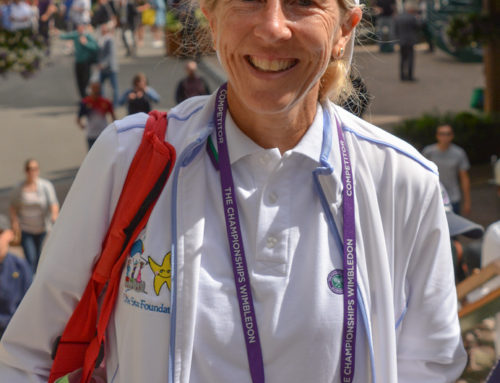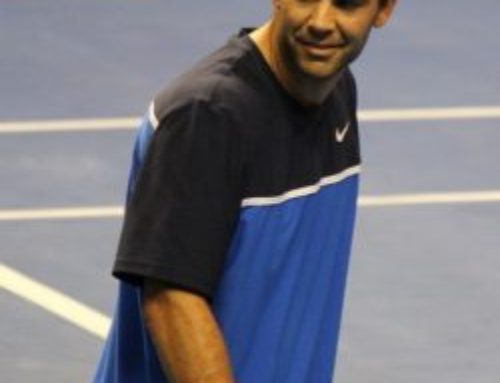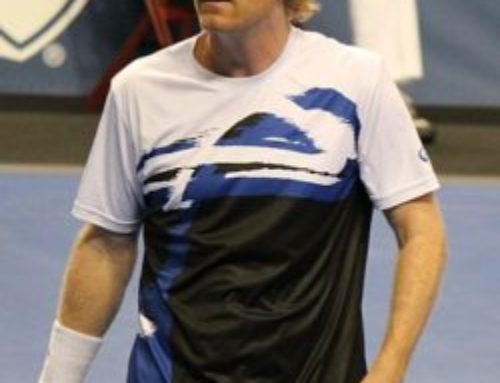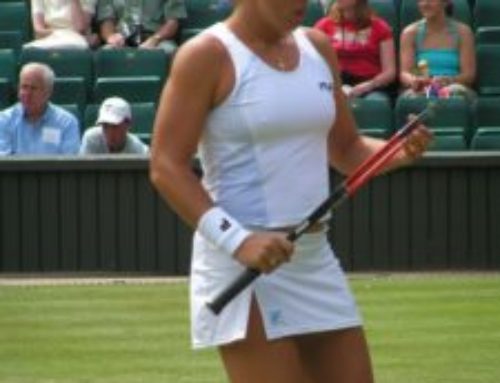Ten years ago, two of the greatest rivals in sport played arguably the greatest match in tennis history. Inexplicably, it was the beginning of the end of an era for Bjorn Borg and John McEnroe.
By JOEY JOHNSTON
Tribune Sports Writer
(c) Tampa Bay Times. Originally published July 1, 1990.
WIMBLEDON, England — John McEnroe was kicking and screaming from his first day at Wimbledon. Nobody tells me what to do, he seemed to snarl. Centre Court was quite unprepared for his New York brashness and guttural outbursts. But it had never seen anyone display such touch and artistry at the net, either.
Bjorn Borg was reserved, almost reverent, in his approach to Wimbledon. Nothing could puncture that mystique. When he marched to the baseline and dug in, a vacuum-like concentration quietly took hold.
McEnroe and Borg. Fire and ice. War and peace. Two men, two styles. Has tennis ever had such complete opposites?
They had nothing in common. Yet, for one still-golden afternoon in 1980, they achieved immortality together. Arguably, it was the best tennis has ever been.
The quintessential memory is Borg, his expression a mixture of joy and exhaustion, sinking to his knees. He had just scorched a backhand passing shot by the lunging McEnroe to end the three-hour, 53-minute test of wills. It was Borg’s fifth consecutive Wimbledon title. It would also be his last.
Borg had beaten McEnroe 1-6, 7-5, 6-3, 6-7 (18-16), 8-6. McEnroe had saved seven match points in the fourth set, including five in the 34-point tiebreak, which lasted 22 minutes. Anyone else would have cracked. Not Borg. He had a a fifth set to win.
Everything about that match seemed perfect. Ten years later, it still does.
“You couldn’t have dreamed of such a match,’’ former champion Arthur Ashe said. “It was something incredible to witness. There’s nothing that compares with a Borg-McEnroe match today.’’
There is a touch of sadness surrounding Borg and McEnroe now, though. Borg retired in 1983, an old, frazzled man of 26. Since then, his personal life has been a roller-coaster. There have been marital problems, financial woes, appearances in court, even rumors of drug use.
McEnroe, 31, still chases the dream. But he hasn’t won a Grand Slam tournament in nearly six years. Last Tuesday, 129th-ranked Derrick Rostagno beat him in a Wimbledon first-rounder.
McEnroe has tried to tone down his on-court rage, but it always surfaces an inopportune times. He was defaulted from last January’s Australian Open. At times, he is a parody of himself. The new generation knows McEnroe more for his arguments than his brilliance.
And that tears him up.
It was different when Borg was around. They still talk. McEnroe still wonders why Borg left. Borg wonders why McEnroe keeps playing. They miss each other. Tennis certainly misses their rivalry, but memories of the 1980 Wimbledon final are enough to satisfy some.
“A lot of people who don’t know or follow tennis got caught up in that 1980 match,’’ said ESPN tennis analyst Mary Carillo, then and now one of McEnroe’s closest friends. “Something real was going on out there, something that transcended just tennis.
“John always had a real love of beauty. He knows when something special is happening, whether it be in basketball, music or art. That match was absolutely gorgeous. He may not verbalize it these days, but I know John treasures it.’’
McEnroe isn’t the only one. Wimbledon is an international event, so it touched every corner of the globe.
Patrick McEnroe, John’s younger brother, was in a tiny Texas motel room, waiting to play in a 14-and-under national tournament. But he wasn’t budging from the television.
“Every shot in that tiebreakers seemed like, well, like what you would dream about for the perfect tennis match,’’ Patrick said. “After that tiebreaker, I didn’t even care if John lost the match. He was part of something incredible, part of something that would be remembered forever.’’
Fourteen-year-old Stefan Edberg, eight years away from winning his own Wimbledon title, was pacing the living room of his home in Vastervik, Sweden. Members of the Swedish national team, qualifying for the European Championships, were there, too. They urged Borg on raucously.
“There was so much noise in that room, you couldn’t hear anything,’’ Edberg said. “We weren’t believing what we were seeing. Everybody was screaming and yelling on every point. That was more than a tennis match.’’
Indeed, it became the end of Borg’s era. McEnroe defeated Borg the following year at Wimbledon, a four-setter that was good, but not great.
Borg would win the 1981 French Open, his sixth championship at Paris, but he failed again at the U.S. Open. Then in 1983, Borg retired. With little warning, he just quit.
He was burned out. True, he never said much, always appearing placid and unbothered. But those years at the top, and the accompanying pressure, had eaten away at him. He had nothing left to give.
In contract, McEnroe had everything left to give. Borg’s retiring? A joke, thought McEnroe. He’ll be back.
Borg never came back. And McEnroe was never quite the same. Sometimes he wonders about all the finals with Borg, perhaps one more like the 1980 Wimbledon, that will never be played.
“In a way, John still can’t believe that Borg is gone,’’ Carillo said. “I don’t think he respected his opponents much after that. It wasn’t the same when he played people like Mats Wilander and Ivan Lendl. They weren’t Borg. He was happiest when he was chasing Borg.
“John was never really in love with his craft, anyway. You think your talent is a renewable resource, but it’s not that way. When you lose your nerve and quickness, it’s gone. John realized entirely too late what he had. Now that he wants it back, it isn’t there. It’s a very complex situation.’’
McEnroe remains an enigma, even to those who have known him for years.
“I’ve known him, yet I haven’t known him,’’ said former tour player Brian Gottfried, now director of tennis for the ATP Tour. “You see him do some things on the court that are beyond belief.
“Some days, we could have these great conversations. Other days, it’s like he doesn’t want to have anything to do with anybody out here. Everyone’s an enemy. It’s like he’s playing with 51 cards sometimes. Hard to understand.’’
Borg was similarly mysterious in his manner.
“Nobody really knew Borg, nobody really knew what was going on in that mind,’’ Ashe said. “He just wasn’t the kind of guy who would let you get to know him.
“For me, as brilliant as he was, I’ll always think of the things he left unfulfilled. He played the Australian Open once. He never seriously tried to win a Grand Slam. He was so good, I thought he owed the sport that. And when he retired, he left the sport wanting. The people want more of Borg.’’
They will never get it, just as they may never see McEnroe win another Grand Slam title.
But the memories of 1980 will live forever.




